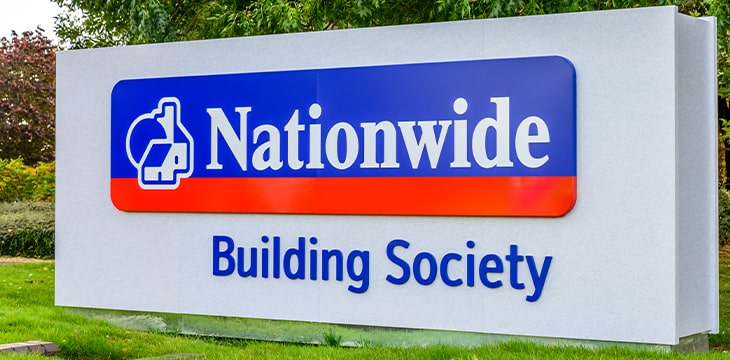|
Getting your Trinity Audio player ready...
|
One of the UK’s largest retail financial institutions, Nationwide Building Society, is to review its policies around digital currency, in a move that could see further scrutiny for customers engaging with cryptocurrencies through Nationwide accounts.
The high-street lender, the largest building society in the world, becomes the latest major institution to tighten up its approach to digital currencies, following moves from the Financial Conduct Authority (FCA) to introduce stricter rules around the use of digital currencies.
Among the actions that will now be taken by the institution are blocking payments that are deemed suspicious, as well as issuing targeted scam warnings to those thought to be most at risk from fraud and other forms of criminality.
In announcing the revisions to its digital currency policies, Nationwide joins the likes of Santander, NatWest, and Barclays in applying pressure to those who engage with digital currencies through their accounts. Many of these banks are already blocking digital currency exchanges altogether, or applying increased levels of account scrutiny to customers who use crypto platforms.
The developments come against a backdrop of tightening regulation at the FCA, which introduced new licensing measures recently to deliver better regulation for the sector.
According to Mark Steward, head of enforcement and market oversight at the FCA, a number of firms are still managing to do business in the U.K. without the appropriate licensing in place.
“We have a number of firms that are clearly doing business in the U.K. without being registered with us and they are dealing with someone: banks, payment services firms, consumers.”
With increasing numbers of consumers choosing to buy cryptocurrencies through their accounts, the strengthening of the rules is seen as a way to protect consumers against frauds and scams, as well as to prevent unexpected losses from speculative digital currency investments.
Watch: CoinGeek Zurich panel, Service Providers in the Digital Asset Industry: Evolving for Scale

 02-26-2026
02-26-2026 




